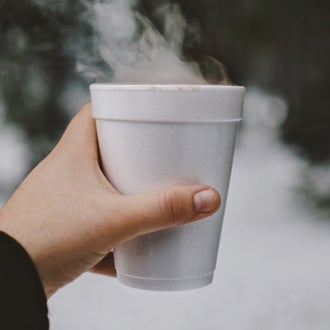An employee complained that offering tea and coffee in polystyrene cups is dangerous as hot liquid in polystyrene cups causes cancer. Is this true?"
All food packaging, whether it’s plastic, paper, glass or otherwise, contains substances which can “migrate” in very tiny amounts to foods or beverages. In the case of polystyrene, tiny amounts of styrene may remain following manufacture and it’s this substance that may migrate.
In 2014, the National Research Council in the US reviewed the evidence and concluded that styrene is “reasonably anticipated to be a human carcinogen”. However there is more to consider. Firstly, the evidence was limited because alternative explanations in these studies, such as chance, bias or confounding factors, could not be excluded. Secondly, the Plastics Foodservice Packaging Group found that exposures to styrene from the use of polystyrene food contact products is extremely low – with the estimated daily intake calculated at 6.6 micrograms per person per day. This is more than 10,000 times below the safety limit set by US Food and Drug Administration.
Regulatory bodies around the world, such as the US Food and Drug Administration and The European Commission/European Food Safety Authority, who undertake rigorous studies to evaluate a product’s safety, have not changed their view that polystyrene is safe for foodservice packaging. When it comes to reducing our risk of developing cancer, not smoking, minimising exposure to UV, reducing alcohol intake, being physically active, avoiding excess weight gain and eating healthy foods are the best things that we can do.

